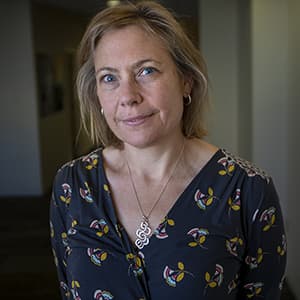Advertisement
The Best Way To Prevent The Next Pandemic? Maybe Saving Tropical Forests

Harvard is launching an international task force to help prevent the next pandemic before it starts. The goal is to go beyond testing and surveillance that will keep viruses contained; instead, the researchers want to stop new diseases like COVID-19 from spreading to humans in the first place.
"The conversation on prevention is entirely about vaccines and diagnostics and drugs and improving health systems, which are all critically important," says Aaron Bernstein, a pediatrician and interim director of the Center for Climate, Health and the Global Environment at Harvard T.H. Chan School of Public Health (Harvard Chan C-CHANGE). "But they're missing the fundamental problem here, which is that we're driving these pathogens into people through our actions that are destroying nature. And if we fail to address that, we can spend all the money in the world on tests and treatments and vaccines and still go through the year we had."
When new diseases like COVID-19 leap from animals to humans, it's called "spillover." And it often happens in the places where wild animals and people meet – in the wild animal trade, for instance, or where tropical forests are being cleared for farmland. Bernstein, who heads the task force, says that’s where we should focus prevention efforts.
"We need to think very carefully about the investments we make," says Bernstein, who notes that new vaccines, while important, target only one disease at a time. Protecting forests, however, adds a "suite of benefits," from protecting the lands of indigenous people, to storing carbon and mitigating floods.
Previous research by Bernstein and colleagues found that preventing spillover — through preserving forests and regulating the wildlife trade — could cost $20-30 billion a year, about 2% of the economic and mortality costs of COVID-19.
The international group of scientistic experts will comb through existing data to identify spillover risks like deforestation, unregulated wildlife trade and animal farming, while proposing actions to prevent spillover in the future.
